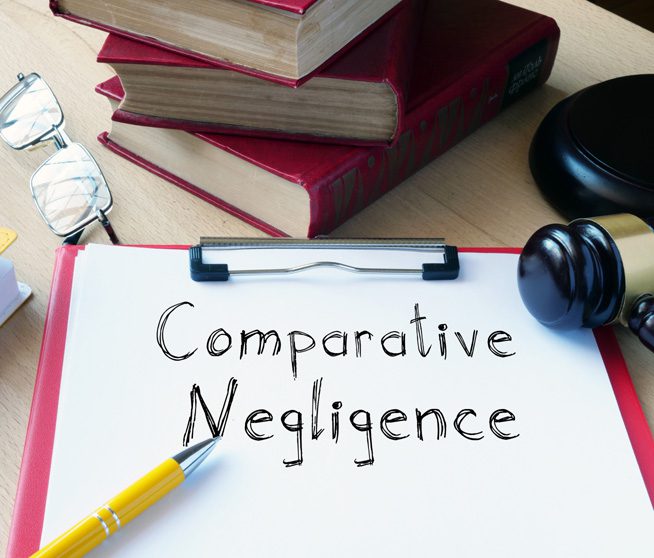- Resources
- Comparative Negligence: How It Affects Your Personal Injury Case
Comparative Negligence: How It Affects Your Personal Injury Case
September 2, 2024

The concept of neglectfulness is pivotal in determining legal liability and damages in every particular injury action. Numerous authorities apply the legal doctrine of relative negligence to determine who’s at fault and how much damage results when an unfortunate event ineluctably interferes with a couple’s festivity. Understanding how it operates is pivotal for all parties involved in an anonymous public injury claim.
What’s Comparative Negligence?
Relative negligence is a captivity doctrine that allows for the allocation of fault and damages among the events bothered in a coexistence primarily grounded on their separate categories of negligence. In simple terms, it states that if you’re in part responsible for your injuries, your prepayment can be reduced by the chance of fault attributed to you.
How Does Comparative Negligence Work?
In countries that observe relative negligence guidelines, there are essential kinds of pure and changed relative negligence.
- Pure Comparative Negligence: Under this rule, every party involved in an accident is assigned a percent of fault grounded on their donation to the incident. Indeed, if you’re discovered to be ninety-nine at fault, you can recover damages, although they’ll be reduced by your chance of fault.
- Changed Comparative Negligence: This rule has versions:
- 50% Rule: In a few states, you could get better damages if your degree of fault is much less than 50%. If you are determined to be similarly or extra at fault than the other celebration, you can not recover any damages.
- Fifty-one Rule: Other states follow a fifty-one rule, wherein you can handiest recover damages if your fault is 50% or much less. You can’t recover any damages if you are fifty percent or extra at fault.
Effect on Non-public Injury Instances:
Comparative negligence can drastically affect the final results of a non-public damage case. Right here’s how:
- Figuring out Fault: Comparative negligence calls for a radical investigation to determine every party’s degree of fault. This will involve accumulating proof, witness stories, and expert reviews to establish the case’s data.
- Reduced repayment: Your compensation may still be reduced if you’re determined to be incompletely at fault in your accidents. For example, if you’re presented with $10,000 in damages but are still set up to be 20 at fault, your prepayment could be dropped to $8,000.
- Negotiations and Settlements: Comparative negligence can affect agreement negotiations. Insurance corporations might also use your level of fault to justify presenting a lower settlement amount. Your attorney will be necessary to negotiate a truthful agreement based on the proof and applicable legal guidelines.
- Court Complaints: If the case is going to trial, relative negligence might be considered with the judge’s or jury’s aid while figuring out the veritably last award. Your legal professional will present arguments and substantiation to alleviate your parchment of fault and maximize your compensation
Types of Comparative Negligence
There are two predominant kinds of relative negligence: natural relative negligence and modified relative negligence.
- Pure Relative Negligence
In countries that misbehave with the pure relative negligence rule, a complainant can recover damages even though they may be at fault for the accident. Still, the compensation they admit is reduced by their chance of fault. For case, if a complainant is 80% responsible for a twist of fate and the overall damages quantum is $10,000, they likely get hold of $2,000. - Changed Relative Negligence
Many countries have followed a modified model of relative negligence. Under this rule, a complainant can only recover damages if their degree of fault falls beneath a certain threshold, generally 50 or 51. However, they are barred from recovering any payment if the complainant is set up to be inversely or less responsible than the defendant.
Factors Taken into Consideration in Comparative Negligence: While figuring out the diploma of fault in a personal damage case, the court docket considers various factors, which include:
- The moves of each celebration led as much as the accident
- Whether any celebration violated visitor’s laws or safety regulations
- The extent of each birthday celebration’s negligence
- The position of any contributing elements, such as climate conditions or mechanical disasters
Conclusion
Comparative negligence is a complex felony concept that could extensively impact private harm instances. Suppose you’re involved in an accident wherein fault is shared. In that case, seeking criminal representation from an experienced personal injury attorney who can navigate the complexities of comparative negligence and combat your rights to truthful reimbursement is crucial. Know-how your rights and duties under comparative negligence laws are essential for protecting your pursuits in any private harm claim.
To improve your likelihood of getting your claimed damage, you may contact The Allied Outsourcing for your legal needs to guarantee prompt drafting without sacrificing quality. Our company, The Allied Outsourcing, uses our vast expertise and worldwide connections to offer outsourced legal services that provide extensive and practical legal support to global law firms and companies.
To access our assistance with legal paperwork and other legal needs,
Please contact us at – https://thealliedoutsourcing.com/contact/
All Categories
- Agile Legal Support (1)
- Case Law (88)
- Case Studies (6)
- Demand Letter (14)
- Deposition Summaries (11)
- Legal Outsourcing (3)
- Legal Research (72)
- Marketing (1)
- Medical Summaries (14)
- Others (4)
- Personal Injury (54)
- Virtual Assistant (59)
- Virtual Paralegal (2)
Related Blogs
Author
Lavina Mathias
Designation: Content Writer and Creator
Dedicated legal content writer specializing in the legal industry. Has a strong track record of producing high-quality content that effectively communicates complex legal concepts to…Reviewer
Ruchi Bhakhri Sharma
Designation: CEO
25 years of combination of serving as a lawyer in India and paralegal support to US lawyers. Led a diverse team of legal professionals, project…Recent Blogs






